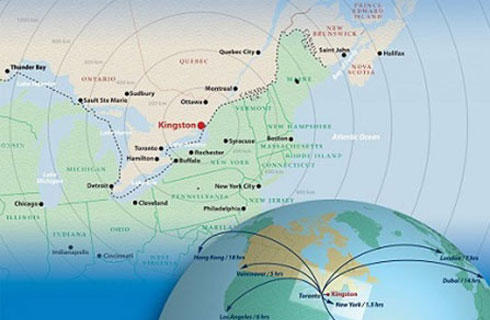经济学和金融学学士学位(荣誉学位)
BSc (Hons) Economics and Finance

学历文凭
Bachelor Degree with Honours

专业院系
FASS - School of Economics

开学时间

课程时长

课程学费

国际学生入学条件
IDP—雅思考试联合主办方

雅思考试总分
- 雅思总分:
- 托福网考总分:
- 托福笔试总分:
- 其他语言考试:
CRICOS代码: L111
申请截止日期: 请与IDP联系 以获取详细信息。
课程简介
What you will study: All our economics students follow the same first year in order to build a solid foundation on which to specialise. This means you can choose to transfer to the BSc in Business Economics and Data Analytics or Economics from your second year or continue with the Economics and Finance BSc. All our programmes include two compulsory employability modules where you will obtain advice and feedback on CV and cover letter-writing, and how to prepare for an interview. You will also be encouraged to think about what kind of career you wish to pursue and how to start working towards your future goals. The first-year modules are designed to provide you with a broad range of basic tools, skills and knowledge that you will develop in the course of your programme. You will study introductory microeconomics and macroeconomics as well as the mathematics essential for an economist to know. First year modules also comprise of introductory statistics and data analysis modules. In the second year, you will start to specialise in your interests, economics and finance. In addition to studying microeconomic, macroeconomics and econometrics now at an intermediate level, you will complete several finance modules. After laying down the fundamental models and concepts of financial economics, the modules will move onto more specific topics in finance (e. g. financial accounting, quantitative portfolio theory and investment). In your final year, you will continue to study finance-related topics but can also choose six optional modules in addition to two compulsory ones. We offer a long list of specialised modules, some of which are more technical than others, all taught by lecturers conducting research in various fields in economics. You will be able to choose to study further finance-related topics (e. g. international finance) or explore other specialised fields in economics (e. g. education, environment) to equip you with invaluable skills for your career. Professional recognitionBSc (Hons) - Chartered Institute of Management Accountants (CIMA) Accredited by the Chartered Institute of Management Accountants (CIMA) for the purpose of exemption from some professional examinations through the Accredited degree accelerated route. Which economics undergraduate degree is right for meWe offer six pathways to study economics. Let us take you through the differences between all of our courses so you know what makes each of them special. Foundation yearIf you don’t meet our entry requirements, you might still be able to apply for this degree with a Business and Economics Foundation Year. This is an extra year of study to develop your skills and make it easier for you to get started at university. On successful completion of your foundation year, you’ll be ready to progress to the first year of your degree. To see what modules you’ll be studying, refer to the foundation tab in the 'Course structure' section.
相关申请
 预科
预科 奖学金
奖学金 实习机会
实习机会 在校学习
在校学习 跨境学习
跨境学习 校园授课-线上开始
校园授课-线上开始 在线/远程学习
在线/远程学习
开学时间&学费
学费信息仅供参考,请与IDP联系以获取详细信息
| 开学时间 | 时长 | 学费 | 地点 |
|---|
学校排名

世界排名251
数据源:
泰晤士高等教育世界大学排名
关于萨里大学

萨里大学拥有一个由15500多名学生组成的全球学生群体,其中超过五分之一的学生来自英国以外的国家和地区。萨里不仅仅是一所大学,它是一个由不同思想和人员组成的全球社区,致力于改变人生的教育和研究。 萨里大学的毕业生就业率是英国最高的大学之一。 萨里大学荣获 2022 年最佳大学职业和就业能力服务奖(全国本科生就业能力奖)该大学以世界一流的研究和创新为动力,通过与企业、政府和社区的敏捷合作对社会产生积极影响并塑造数字经济的未来。 在大学学习课程的学生将为学术界和工业界的众多职业道路做好准备。萨里大学位于繁华的吉尔福德小镇。 吉尔福德距离伦敦市中心仅 35 分钟火车车程。 该大学风景如画的校园拥有一系列出色的学习设施,包括每个学院都拥有最先进的实验室和模拟设备。 大学提供全面的学生服务,包括为国际学生提供的专门支持服务。 萨里拥有各种现代化的住宿设施,国际学生的舒适度和整体体验是萨里大学的首要任务。萨里大学的三个学部提供许多本科和研究生课程,所有课程都具有灵活性,因此学生可以根据专业兴趣和个人目标打造他们个性化的学位。 每个萨里大学的学生在整个学习过程中都受益于高效的职业支持和指导,此外还有大量在核心学位途径之外发展专业技能的机会。
本校相关课程

兽医生物科学理学士(荣誉学位)
学历文凭
Bachelor Degree with Honours
开学日期
课程费用总额


国际旅游管理理学学士(荣誉学位)
学历文凭
Bachelor Degree with Honours
开学日期
课程费用总额


社会学理学士学位(荣誉学位)-专业培训
学历文凭
Bachelor Degree with Honours
开学日期
课程费用总额


社会学理学学士(荣誉学位)
学历文凭
Bachelor Degree with Honours
开学日期
课程费用总额


心理学理学士(荣誉学位)
学历文凭
Bachelor Degree with Honours
开学日期
课程费用总额


国际关系理学士学位(荣誉学位)
学历文凭
Bachelor Degree with Honours
开学日期
课程费用总额

其他相关课程

Undergraduate Foundation Programme (UFP) - Business, Economics, Finance and Management
 ONCAMPUS伦敦南岸大学中心
ONCAMPUS伦敦南岸大学中心学历文凭
Foundation for Undergraduate
开学日期
课程费用总额


Graduate Certificate in Business (Financial Planning)
 昆士兰科技大学
昆士兰科技大学学历文凭
Graduate Certificate
开学日期
课程费用总额


商学学士学位和理学学士学位-金融和数学
 南昆士兰大学
南昆士兰大学学历文凭
Dual Degree
开学日期
课程费用总额


银行与金融理学硕士
 伦敦布鲁内尔大学
伦敦布鲁内尔大学学历文凭
Masters Degree (Taught)
开学日期
课程费用总额


财务管理硕士
 赫尔大学
赫尔大学学历文凭
Masters Degree (Taught)
开学日期
课程费用总额


MSc Islamic Finance
 邓迪大学
邓迪大学泰晤士高等教育世界大学排名:337
学历文凭
Masters Degree (Taught)
开学日期
课程费用总额










